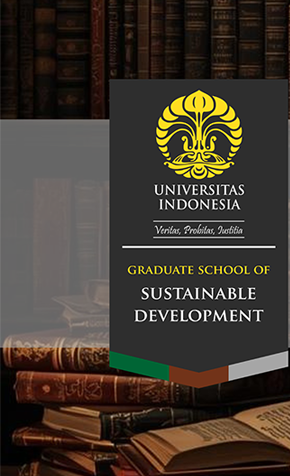Abstract
The aim of the research is to find out the factors that caused the failure of the separatist movement to liberate the autonomous region of Catalonia from Spain, as well as to explain the defense-security strategy carried out by the Spanish government to maintain Catalonia as an inseparable part of this country. The researcher conducts an analysis based on two research questions: why the separatist movement failed to liberate Catalonia from Spain and what defense-security strategy the Spanish government did to defend Catalonia. The method used in this study is a qualitative method by processing primary data in the form of interviews with selected sources. In this study the Separatism Concept and Securitization Theory are used as the basis for researchers in conducting analysis. The findings of this study are as follows: first, the Catalan community is an important factor why the separatist movement failed to liberate Catalonia from Spain, even though it was through a referendum. The number of Catalonian people's participation in the referendum did not reach 50% of the total voter turnout. The next factor is the European Union which is firmly in the position of rejecting the existence of separatism in Catalonia which encourages the involvement of this autonomous region from Spain, which is a member state of the European Union. The second finding is the result of the analysis that the Spanish government has succeeded in carrying out a defense and security strategy through several decisive actions, namely the dissolution of the Catalan parliament, the takeover of the autonomous government of Catalonia, and holding elections for the election of the new Catalonia parliament which is considered to have been dominated by the separatist movement.
Bahasa Abstract
Penelitian ini bertujuan untuk menemukan faktor-faktor yang menyebabkan kegagalan gerakan separatisme dalam memerdekakan wilayah otonomi Catalonia dari Spanyol, serta menjelaskan strategi pertahanan-keamanan yang dilakukan pemerintah Spanyol untuk mempertahankan Catalonia sebagai bagian tak terpisahkan dari negara ini. Peneliti melakukan analisis berdasarkan dua pertanyaan penelitian: mengapa gerakan separatisme gagal memerdekakan Catalonia dari Spanyol dan Strategi pertahanan-keamanan apa yang dilakukan Pemerintah Spanyol untuk mempertahankan Catalonia. Metode yang digunakan dalam penelitian ini adalah metode kualitatif dengan pengolahan data-data primer berupa hasil wawancara dengan narasumber yang telah dipilih. Dalam penelitian ini Konsep Separatisme dan Teori Sekuritisasi digunakan sebagai landasan peneliti dalam melakukan analisis. Temuan penelitian ini adalah sebagai berikut: pertama, masyarakat Catalonia merupakan faktor penting mengapa gerakan separatisme gagal memerdekakan Catalonia dari Spanyol, meskipun melalui referendum. Jumlah keterlibatan masyarakat Catalonia dalam referendum tidak mencapai 50% dari total jumlah pemilih. Faktor berikutnya adalah Uni Eropa yang dengan tegas berada pada posisi menolak eksistensi separatisme di Catalonia yang mendorong keterlibatan wilayah otonom ini dari Spanyol yang merupakan negara anggota Uni Eropa. Temuan kedua adalah hasil analisis bahwa pemerintah Spanyol berhasil memainkan strategi pertahanan keamanan melalui beberapa tindakan tegas, yaitu pembubaran parlemen Catalonia, pengambilalihan pemerintahan otonom Catalonia, serta menyelenggarakan pemilu untuk pemilihan parlemen baru Catalonia yang dianggap telah didominasi gerakan separatisme.
References
DAFTAR REFERENSI
Artikel Jurnal
Anastazia Marinze, 2014, Catalonia: The Quest for Independence from Spain, Journal of John Carroll University Vol 1 No 1
Brandon M. Boylan, 2015, In pursuit of independence: the political economy of Catalonia’s secessionist movement, Journal Of The Association As For The Study Of Ethnicity And Nationalism, University of Alaska Fairbanks, Vol. 4
Christos Anastasios Tzagkas, 2018, The Internal Conflict in Spain: The case of Catalonia, International Journal of Latest Research in Humanities and Social Science (IJLRHSS) Volume 01 - Issue 08
Ernesto Castañeda and Sebastian Megens-Sedor, 2019, The Movement For Catalan Independence, Journal of American University Washington D.C.
Firman Noor, 2016, Analisis Terhadap Kebijakan Pemerintah Tentang Separatisme Papua, Jurnal LIPI, Vol.6, No. 3
Humphrey Wangke, 2017, Referendum Kemerdekaan Catalunya Dari Spanyol, Jurnal Pusat Penelitian, Badan Keahlian DPR RI, Vol. IX, No. 20
Ignatius Hubert, 2020, Catalan Identity And Paradiplomacy Strategy In Catalonia’s Independence Movement, Jurnal Politik Internasional Fisip UI Vol. 22 No. 2.
Lluís Pérez and Marc Sanjaume, 2013, Legalizing Secession: The Catalan Case, Journal Of Conflictology, Volume 4, Issue 2
Montserrat Guibernau, 2013, Prospects for an Independent Catalonia, Springer International Journal of Politics, Culture, and Society Vol 27 No.1
Ryan T. Judd, 2014, Corruption and Catalan Independence, South Carolina Journal Of International Law & Business, Vol. 10 No.2
Thomas Jeffrey Miley, 2019, Conflict in Catalonia: A Sociological Approximation, Journal Genealogy Department of Sociology, University of Cambridge.
Buku
Buzan, B. 1991. People, states and fear: An Agenda for security Analysis in the Post-Cold War Era. Brighton: Weatsheaf
Buzan, B., Waever, O. and de Wilde, J. 1998. Security – A New Framework for Analysis, Colorado: Lynne Rinner Publishers, Inc., Boulder.
Roehner, B. M., & Rahilly, L. J. (2016). Separatism and Disintegration. A Comparative investigation. LPTHE, University of Paris
Recommended Citation
Widodo, Agus and Nugrahani, Henny Saptatia Drajati
(2022)
"KETERLIBATAN GERAKAN SEPARATISME DALAM UPAYA KEMERDEKAAN CATALONIA DARI SPANYOL,"
Journal of Terrorism Studies: Vol. 4:
No.
1, Article 7.
DOI: 10.7454/jts.v4i1.1048
Available at:
https://scholarhub.ui.ac.id/jts/vol4/iss1/7

